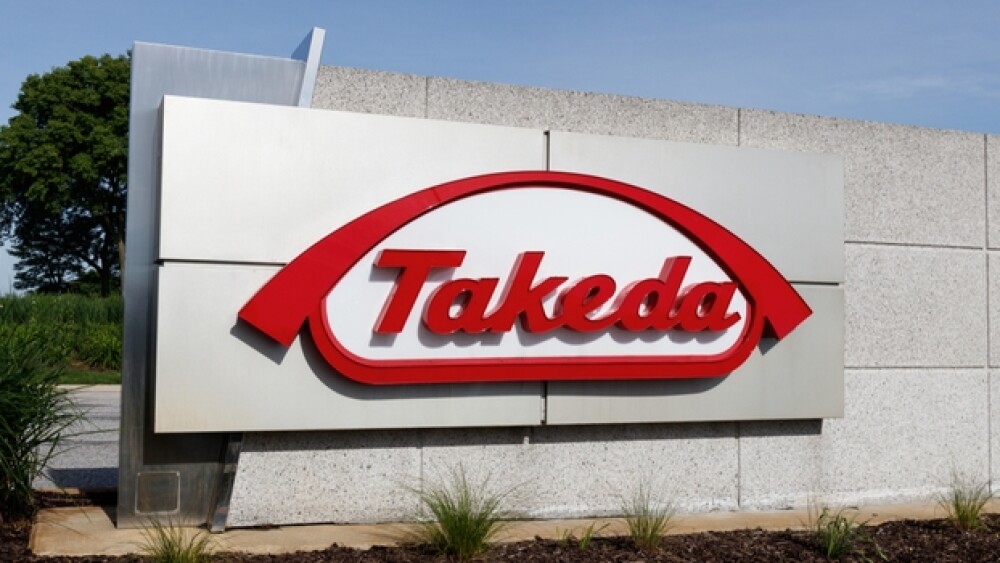The FDA granted priority review to Takeda’s Biologics License Application for TAK-003, a dengue vaccine candidate. The vaccine to date is only approved for use in Indonesia.
Image courtesy of Getty Images
The FDA granted priority review to Takeda’s Biologics License Application for TAK-003, a dengue vaccine candidate. The vaccine to date is only approved for use in Indonesia.
A mosquito-borne illness, dengue fever presents with a sudden, high fever, severe headaches, pain behind the eyes, joint and muscle pain, fatigue, nausea, vomiting, skin rash and mild bleeding. Worldwide, it affects about 400 million people annually, with approximately 96 million resulting in infection.
The disease is endemic in Puerto Rico and the U.S. Virgin Islands, both U.S. territories. Puerto Rico had a major outbreak in 2010, with more than 12,000 cases, which remained at high levels into 2012 and 2013.
People can get dengue up to four times. The second infection is typically worse than the first.
Gary Dubin, M.D., president of the global vaccine business unit at Takeda told BioSpace that dengue is widespread, “infecting an estimated 390 million people annually, and can affect anyone spending time in an endemic area.”
It’s one of the leading causes of fever among travelers returning to the U.S. from Latin America, the Caribbean and Southeast Asia, he said.
“If approved, we believe TAK-003 has the potential to become an important dengue prevention option for healthcare providers,” Dubin said.
In January 2019, Takeda announced the vaccine met the primary efficacy endpoint in its Phase III TIDES trial, which evaluated 20,000 patients in dengue-endemic locations in Latin America and Asia.
It demonstrated an overall protection rate of slightly over 80% in children ages 4-16 who were analyzed 12 months after a two-dose treatment regimen.
Concerns persisted about the Takeda vaccine, similar to Sanofi’s approved Dengvaxia vaccine, namely, that the shots make the second infections more severe, particularly in children.
Sanofi’s Dengvaxia is a vaccine against all four dengue serotypes. It was approved by the FDA in 2019.
Dengvaxia was pulled from the Philippine market in 2017 over safety issues.
A pediatrician and medical researcher, Rose Capeding, former head of the dengue department of the Research Institute for Tropical Medicine (in the Philippines had been indicted in 2019 over the failed vaccine introduction in the country.
The vaccine appeared to have been linked to 10 deaths, although Sanofi strongly disputed the findings.
Dengvaxia is approved in the U.S. and Europe, but only for people who have been infected with dengue virus before and who live in endemic areas.
The BLA for TAK-003 is built on safety and efficacy data from the TIDES trial. In addition to meeting the primary endpoint, preventing 80.2% of symptomatic dengue cases at 12 months, it hit its secondary endpoint by preventing 90.4% of hospitalizations at 18 months.
An exploratory analysis showed protection against dengue fever through 4.5 years after receiving the shots.
TAK-003 is a tetravalent vaccine based on a live-attenuated dengue serotype 2 virus. This, the company indicated, provides the genetic “backbone” for all four vaccine viruses. In earlier studies, the vaccine-induced immune responses against all four dengue serotypes in patients who had no previous exposure and in patients who were seropositive, indicated they had previous exposure.
The safety data from an integrated analysis demonstrated that Serious Adverse Events were 6.21% in the group receiving the vaccine and 7.56% in the placebo cohort. The most common adverse events were nasopharyngitis, upper respiratory infection, viral upper respiratory tract infection, viral infection and fever.





